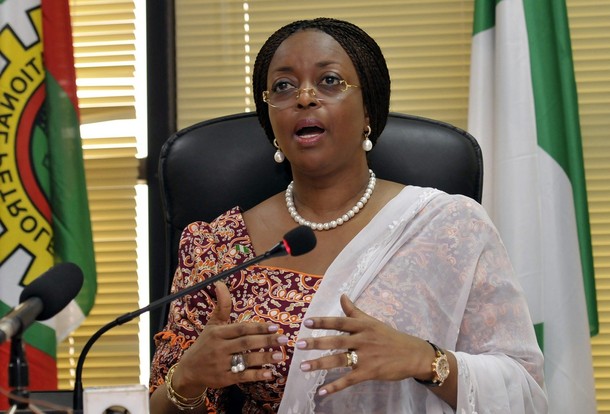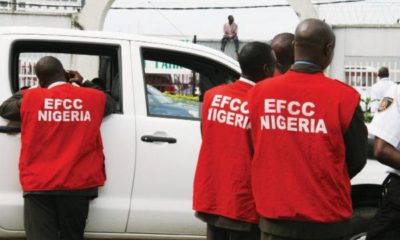- EFCC to Auction Diezani’s Jewelry, Assets Worth N14.4bn
The Economic and Financial Crimes Commission (EFCC) has said the jewelry recovered from the former Petroleum Resources Minister, Mrs. Diezani Alison-Madueke, will be auctioned.
Ibrahim Magu, the chairman of the commission, disclosed this on Thursday.
The chairman said the jewelry and other assets worth $40 million or N14.4bn will be auctioned by international auctioneers which the commission has contacted to help sell the high profile luxury items and assets.
Magu added that other assets recovered from internet scammers would also be auctioned, he mentioned 242 trailers and tankers, houses and other assets.
Magu said: “From January to date, the Lagos office of the commission has made 300 arrests, secured 207 convictions and recovered a good number of exotic cars.
“In addition, several property suspected to have been acquired through the proceeds of crime were sealed.
“But the recent arrest of a renowned social media celebrity, Ismaila Mustapha, popularly known as Mompha, and his Lebanese collaborator, Hamza Koudeih, for alleged involvement in internet-related fraud and money laundering, remains a landmark achievement.
“As you are all aware, actionable intelligence received from local and international law enforcement agencies had revealed that Mompha and Hamza, alongside their collaborators, are high-valued targets in Organised Cyber Syndicate Network (OCSN).
“I make bold to tell you that these arrests have further confirmed our commitment to the anti-graft war, while also sending a red alert to potential internet fraudsters. For us, there will be no hiding place for fraudsters as the commission will hunt and bring any errant and criminally-minded persons to justice.
“We remain undaunted and will leave no stone unturned to ensure that our country is sanitised from the menace of corruption, particularly the various computer-based frauds. The commission is, however, contemplating putting in place a policy of rehabilitating these youths, so that they can deploy their computer ingenuity to good use for the overall well-being of the society.
“In fact, we must continue to mentor our youths and impress it on them to shun crimes and its alluring temptation because it will always end in sorrow and regret,” he stated.

 Forex3 weeks ago
Forex3 weeks ago
 Naira3 weeks ago
Naira3 weeks ago
 Billionaire Watch3 weeks ago
Billionaire Watch3 weeks ago



 Naira3 weeks ago
Naira3 weeks ago






 Naira3 weeks ago
Naira3 weeks ago




 Naira2 weeks ago
Naira2 weeks ago




 Naira4 weeks ago
Naira4 weeks ago






 Naira2 weeks ago
Naira2 weeks ago
























